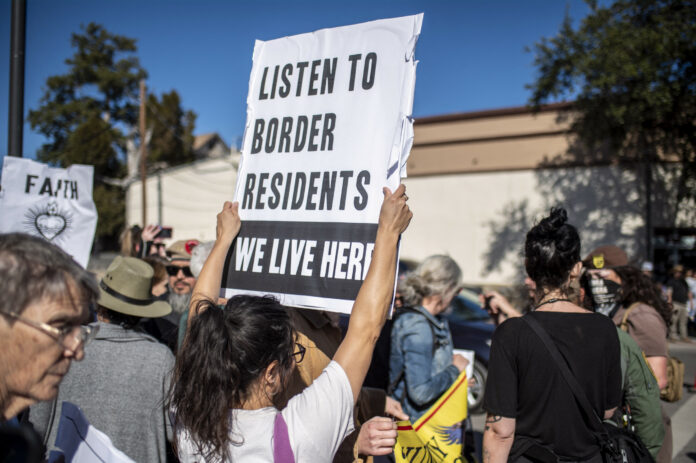Texas’s Gov. Greg Abbott and the Biden administration are locked in a back-and-forth appellate battle over the state’s migrant arrest law. The law, known as SB 4, criminalizes illegal border crossings, graded as a misdemeanor, or, for repeat offenders, a felony punishable by up to 20 years in prison. The case was most recently sent back down by the U.S. Supreme Court to the U.S. Court of Appeals for the Fifth Circuit for consideration. Meanwhile, Iowa’s legislature has passed a bill making it a crime to enter the state after a person has been deported or denied entry to the U.S. Iowa is not alone, either. No less than seven Republican-controlled states are considering proposals and legislation similar to Texas and Iowa, even though the constitutionality of Texas’s legislation is still very much in doubt.
Gov. Abbott has stated that he believes SB 4’s fate will ultimately be determined by the U.S. Supreme Court. While he’s right, a final decision by the high court is still a few procedural steps away. That’s why those other Republican-led states should probably wait until they know for certain that SB 4 is even constitutional. Otherwise, they may make a wasteful legislative investment in a law that will be effectively invalidated by the Supreme Court before it’s even enacted.
Critics of the modern Supreme Court often assume they can count the votes before the Court rules on an issue, based upon the ideological composition of the Court. They simply expect that the Court will come down on the conservative side, since six justices are conservative and just three liberal. Of course, as effective as this method has been in the past, we can’t know for certain which way a justice will rule until the justice rules.
SERGIO FLORES/AFP via Getty Images
The SB 4 case is different, though. When and if this case returns to the Supreme Court, we know for certain which way some justices will go. That’s because they have already told us—three of them, at any rate.
In returning the Texas case to the Fifth Circuit, the conservative majority told us virtually nothing, other than the case was returning to the Fifth Circuit. But the three liberal justices told us a lot: they told us exactly what they thought of SB 4, in their dissent. Justices Elena Kagan, Sonia Sotomayor, and Kentanji Brown Jackson all dissented from the Supreme Court decision.
Justice Sotomayor and Justice Brown Jackson said the “law will disrupt sensitive foreign relations, frustrate the protection of individuals fleeing persecution, hamper active federal enforcement efforts, undermine federal agencies’ ability to detect and monitor imminent security threats, and deter noncitizens from reporting abuse or trafficking.”
Justice Elena Kagan’s dissent was shorter, and more to the point: “I would not allow Texas Senate Bill 4 to go into effect.” It’s a safe bet that once SB 4 is actually before them, these three justices will vote to strike it down.
But since these three justices make up a minority, it’s possible that their known position on SB 4 will ultimately mean nothing. It’s a lot like knowing the face-up cards on the poker table in a game of Texas Hold ‘Em. Knowing the known cards gives you a lot of information, but those unknown cards in everyone else’s hand means you can’t count on any one outcome, no matter the odds.
In then end, maybe that’s exactly what these Republican-led states are doing: Instead of waiting for certainty in the distant future, they are gambling, hoping the odds are probably in their favor. These states are probably operating on an assumption: Even though three of the Supreme Court’s justices have indicated they would strike down SB 4, the ones who remained silent will come up aces for them.
Those remaining justices might. But they might not.
Danny Cevallos is an NBC News and MSNBC Legal Analyst and a criminal defense attorney.
The views expressed in this article are the writer’s own.
Uncommon Knowledge
Newsweek is committed to challenging conventional wisdom and finding connections in the search for common ground.
Newsweek is committed to challenging conventional wisdom and finding connections in the search for common ground.


